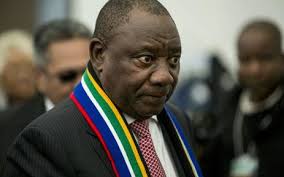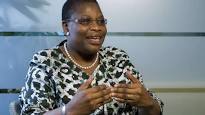South Africa’s economy steeped into its first recession for almost a decade, thus worsening the national currency’s depreciation amid the recent emerging-market rout.
A news report by Bloomberg indicated that during the quarter under review, the economy shrank an annualized 0.7 percent, a slump that was far worse than any forecaster had anticipated.
According to the report, the outcome casts a pall over the country’s new leadership headed by President Cyril Ramaphosa, providing an uncomfortable parallel with the initial phase nine years of Ramaphosa’s predecessor, Jacob Zuma.
The contraction further underscored the fragility of South Africa’s economy at a time when the country has been dragged into the emerging market turmoil of the past month that engulfed Turkey and Argentina.
It was reported that slack farming output and soft consumer spending were among the weak spots of Africa’s most industrialized country’s economic indices.
Bloomberg reported further that while Ramaphosa’s rise to power since December initially boosted sentiment and the rand following Zuma’s tenure of almost nine years, the initial optimism faded as economic reforms were not implemented fast enough just as the impact of global trade wars and turmoil in other emerging markets impacted the economy negatively.
An economist at Paarl, South Africa-based NKC African Economics, Elize Kruger, was quoted as saying through phone that the contraction of the economy was “showing that this economy remains in the doldrums, that we are in desperate need for policy certainty and structural reform to get us onto a growth path.
“This type of environment is difficult for job creation. We’ll get stuck in our low-growth term if we can’t get out of this”, Kruger added.
The rand weakened 2.9 percent to 15.2973 per dollar in Johannesburg. Yields on rand-denominated government bonds due December 2026 rose 21 basis points to 9.22 percent, the highest level since before Ramaphosa became leader of the ruling African National Congress.
Commenting, Bloomberg Economist, Mark Bohlund, said: “Virtually every component in GDP came in worse than expected, deepening the divergence in improved business sentiment and weakening economic activity.
“We will reassess our real GDP forecast for 2018, which we have already brought down to 1.2% from 1.5% previously. A reading of 0.5-1.0% now looks more likely”, he added.
A contraction for the fourth quarter of 2016 was later revised to show growth, resulting in this being the first recession since the financial crisis of 2009.
Other highlights from the release showed that Agriculture declined the most, recording an annualized 29.2 percent contraction; Mining production expanded 4.9 percent from the previous quarter; Manufacturing shrank 0.3 percent and Trade contracted 1.9 percent.




